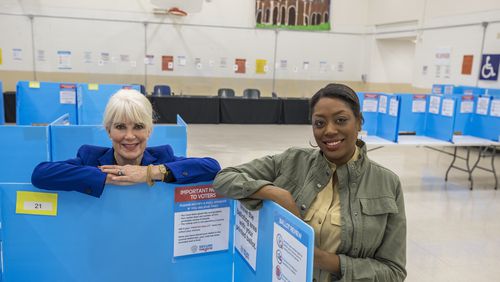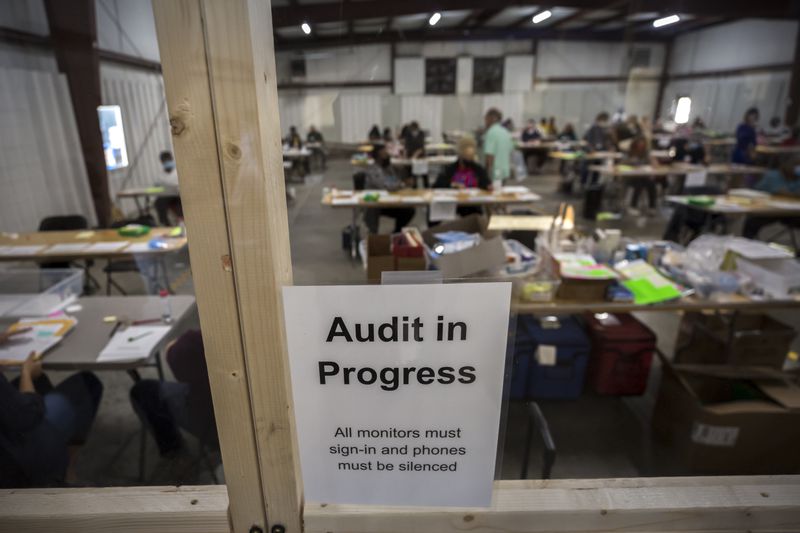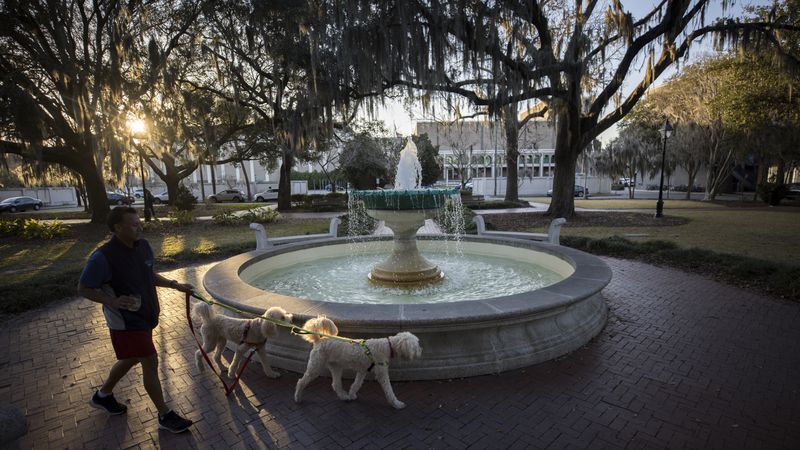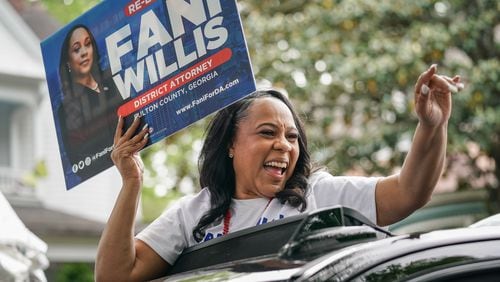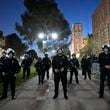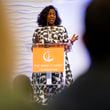SAVANNAH — Priscilla Reed eased out of the minivan double-parked in front of the Congregation Mickve Israel’s social hall on the morning of March 12 as her son unfolded her wheeled walker. Determined to cast her ballot in the Georgia presidential primary, the 80-year-old Reed told her escort to drive around the block as she headed for the voting precinct located inside the historic synagogue.
Minutes later she emerged, a peach “Georgia Voter” sticker on her shirt, and signaled for the car. It was worth the effort, she said.
“I’m here to show my children and grandchildren how important it is to vote,” Reed said. “A lot of them say they won’t go this year, but if I make this effort, I’m thinking they will, too.”
The November election pitting President Joe Biden, the Democratic incumbent, against former President Donald Trump, the Republican nominee, likely will be decided by voters in a handful of battleground states, Georgia among them. The state went for Biden four years ago, interrupting nearly three decades of GOP dominance.
Among the deciding factors in 2020 was turnout, with nearly 1 million more Georgians casting ballots compared with the 2016 election. Among the counties that saw a surge in voting was Chatham, home to Savannah and the state’s most populous county outside of metro Atlanta.
Credit: Stephen B. Morton for The Atlanta Journal Constitution
Credit: Stephen B. Morton for The Atlanta Journal Constitution
The number of votes cast in Chatham jumped 19.6% in 2020, an increase local voting rights activists called remarkable, considering the election happened amid the COVID-19 pandemic. Biden received 19,249 more votes than the 2016 Democratic nominee, Hillary Clinton. Trump got 9,583 more votes than he did in his first run for president in 2016.
Chatham’s turnout and Biden’s net vote gain over Clinton were decisive factors in the statewide election. Trump went from defeating Clinton by 231,323 votes in 2016 to losing the state to Biden by 11,779 voters in 2020.
Voter engagement in Chatham came in part due to a concerted get-out-the-vote effort staged by Savannah-area activist groups, both partisan and nonpartisan. Among the most visible campaigns was the one run by the League of Women Voters of Coastal Georgia, a nonpartisan organization committed to vote engagement.
League volunteers swarmed the county, passing out sample ballots, posting signs advertising polling hours and locations, and renting tour trolleys to transport those in need of a ride to voting precincts. They even donated eight ballot drop boxes to the Chatham Board of Registrars for placement throughout the county.
“It was such a trying time, and it called for a concerted effort, especially for a group that wasn’t looking at one party over the other,” said Nina Altschiller, the League board member who organized the get-out-the-vote campaign. “The more people who vote, the more reflective the outcome is of what people want. We didn’t want to see circumstances suppress the number of Chatham County residents who cast ballots.”
The League is planning a similar push this fall as many political experts predict Georgia’s result will again depend on turnout. Chatham is seen as a bellwether: The county is among Georgia’s most diverse counties, from race to age to socioeconomic status.
Black residents, such as Reed, the determined primary voter, make up 41% of the population. The Hispanic community is growing in the western part of the county, accounting for 7% of inhabitants. And Chatham is a retirement destination, with 17% of Savannahians age 65 or older.
The Savannah area is relatively insulated from the economic issues that traditionally drive voter turnout. The local economy is strong, and the area’s unemployment rate is 3.2%. The county is plagued by a housing shortage of nearly 10,000 units — 73% of those for families earning between $18,550 and $74,150 annually — yet community leaders fear voter apathy.
Credit: Stephen B. Morton for The Atlanta Journal Constitution
Credit: Stephen B. Morton for The Atlanta Journal Constitution
Reed senses such disinterest, particularly among Savannah’s Black community, a demographic that’s influential in electing Democrats. In 2020, Black Savannahians propelled Democrats to victory in every countywide office where the party fielded a candidate, from district attorney to coroner, a rare occurrence in a county where residents frequently vote across party lines.
Such was the power of what local political insiders call the “Trump effect.” But some say the anti-Trump sentiment in the Black community has faded, and they recognize disengagement could have an impact on turnout.
Altschiller acknowledged the election fatigue but predicted Chatham will again see strong turnout in November.
“You have two candidates who stir up emotions, both positive and negative, in just about every voter out there, and they will come out and vote,” she said. “The question is which side does the better job of mobilizing them.”
About the Author

